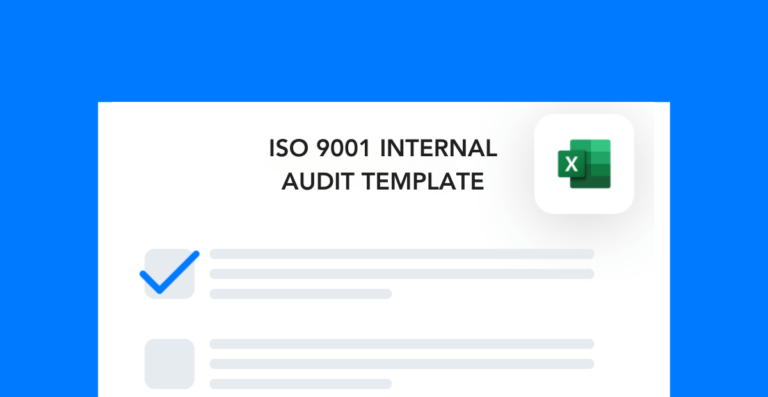ISO 9001 is a widely recognized standard for quality management systems. An ISO 9001 lead auditor plays a crucial role in ensuring compliance with the standard. However, you can also use it to improve EHS management systems. ISO 9001 helps organizations achieve operational excellence by providing a framework for consistent processes, continuous improvement, and risk management.
Lead auditors play a major role in the implementation of this framework, so it’s important to understand what they do within the process.
Free template!
This template will guide you through an internal ISO 9001 audit.
What exactly is an ISO 9001 lead auditor?
An ISO 9001 lead auditor is an experienced professional who is certified to conduct audits of quality management systems based on the ISO 9001 standard.
These auditors are trained to assess an organization’s compliance with ISO 9001 requirements and identify opportunities for improvement. They also play a vital role in helping organizations achieve and maintain certification.
This includes reviewing policies, procedures, and records related to EHS management, as well as interviewing employees and observing processes.
What are the benefits of having a lead auditor?
Having lead auditors assess your EHS systems can provide several benefits, including (but not limited to):
Improved risk management: The top benefit of having a lead auditor is the impact they have on your risk management strategy. As someone with extensive knowledge of the framework, a lead auditor can quickly point out risk areas that need addressing. This can save you time and will allow you to make a more concentrated effort to eliminate issues.
Increased efficiency: With the continuous improvement principles outlined in the ISO 9001 framework, you can find new ways to reduce waste. This eliminates cost variables and helps your teams work more efficiently overall.
Enhanced credibility: It’s one thing to achieve ISO 9001 certification. It’s another thing to maintain it. Lead auditors help you retain the benefits you receive when you first roll out the framework. Plus, dedicating a person to this process demonstrates your commitment to sustainability and stakeholder expectations
Cost savings: When you proactively minimize risks, you can save a decent amount of money in the long run. Look at your lead auditor as an investment in the risk mitigation process. Their skills can help you identify not only compliance issues but also continuous improvement projects to save you money elsewhere.
More ISO 9001 resources
ISO 9001 helps organizations improve risk management, increase efficiency, enhance credibility, and save money. Lead auditors play a critical role in helping organizations implement and maintain EHS programs that comply with the ISO guidelines.
If you haven’t already, you should consider working with ISO 9001 lead auditors to ensure that your systems are optimized for performance and sustainability.




